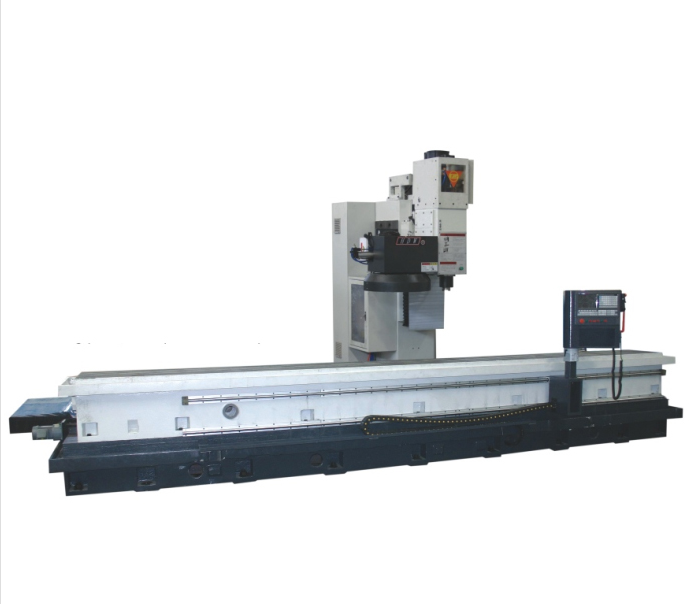Separation of arsenopyrite and carbonaceous materials from gold ore by beneficiation has been extensively studied and applied. The important people here are described below. Guangxi six Gold Ridge gold particles 77.84% disseminated pyrite in quartz and in 22.11% in the presence of arsenopyrite. Since the arsenic-containing minerals as well as the realgar and orpiment deposit. Although the deposits of realgar and orpiment and gold coexist, and the gold particles are not closely related to them, the ore is ground with mercury and then mixed with butyl xanthate and 2 # oil, and male and female are fine. In the mine, the concentrate produced contains Au 30-40 g/t and As 8%-9%. Sales are difficult. After exploration, change the grinding particle size from 70% to 80% -0.074mm (-200 mesh) (without fine grinding), add selective n-butylamine black medicine (without adding foaming agent) 100g∕ t, lime 0.58kg ∕t, after three stages of flotation at pH=8~9, male and female yellow were inhibited and removed, and the gold content of the concentrate produced increased to 60-80g∕t, and As decreased to 2.1%-2.4%. The cost of pharmaceuticals also dropped from 1.74 yuan to 0.29 yuan / t ore. In view of the coexistence of alkali and oxidant, the arsenopyrite is more oxidized than pyrite. Therefore, the research on the flotation separation of arsenopyrite from arsenic gold ore by adding oxidant has also been paid attention to, and many reports have been reported at home and abroad. Zhu Hongshen et al reported that the addition of butyl xanthate (1×10 -5 mol/L) and potassium peroxydisulfate (16×10 -5 mol∕L) to the slurry at floatation at pH 7.5 can cause the surface of the arsenopyrite to occur. Oxidative removal. Process, S generated SO 4 2 - diffusion to the solution, Fe generating Fe (OH) 3 gelatinous body, As generated AsO 4 3 - 3 are adhered colloidal Fe (OH). At this time, the AsO 4 2 - carried on the surface of the arsenopyrite is covered with a Fe(OH) 3 film to produce hydrophilicity, which is separated from the pyrite. It was used in the comparative tests respectively through three kinds of the oxidizing agent, the oxidation capacity of potassium permanganate> calcium hypochlorite> potassium persulfate. The test results show that the oxidation of potassium permanganate is too strong, and it lacks selectivity for arsenopyrite and pyrite, while the latter two are more moderate. In the former Soviet Union, a carbon and arsenic gold deposit is 16% monomer, 64% is symbiotic with sulfide, and the remaining 20% ​​is present in carbonaceous shale . The particle size of gold is 8 to 32 μm. In order to remove the carbon, adding an appropriate amount of oil when the coal flotation after grinding so that the carbon passivation. The addition of kerosene also reduced the consumption of xanthate from 300g ∕t to 150g ∕t during flotation. The flocculated mixed concentrate is further added with FeSO 4 , 150g ∕t, CuSO 4 75g ∕t for flotation, and two gold-containing products of toxic sand concentrate and pyrite concentrate are respectively produced. The carbonaceous ore of the main vein of California, USA, is first separated from the ore by grinding, so that carbon enters the slime. The ore is sent to cyanide. After the carbon-containing slime is mixed with mercury to collect free gold particles, the sulfur concentrate is produced by flotation. A Canadian patent proposes to add kerosene to passivate the carbon surface and then send cyanide to reduce the adsorption loss of dissolved gold on carbon. The method can be used for the cyanidation countercurrent decantation washing process. When used in the cyanide carbon slurry method, the residual kerosene can inhibit the activated carbon and reduce its adsorption effect on the dissolved gold. Whether carbon is suppressed using kerosene or other petroleum products, it is usually only partially effective. This is due to the different nature of the carbonaceous ore in each mine. Some or some of the carbon contained in some ore is present as a hydrocarbon (or humus), and gold in such sediments cannot be leached by cyanide. For this ore, a chemical oxidation method using NaOCl or Cl is used, and hydrocarbon substances are more easily decomposed. Abotsi et al. studied the effect of carbon on cyanide gold extraction and confirmed that the addition of organic agents, dinonylnaphthalenesulfonic acid and n-hexane, can be effectively adsorbed on carbonaceous materials, while preventing carbon from being dissolved. Gold adsorption loss. I Features:
This series machine for CNC dynamic column
Drilling And Milling Machine, the workpiece can be automatically and
continuously finished milling, drilling, boring, reaming, reaming, tapping
etc variety of processes in a fixture, The machine is suitable for procssing multi variety and
small batch of long plate, shell parts etc complex parts.
II.Main model and spec
Main specification
Unit
DZK5400
DZK3400
DZK1400
Worktable
size
mm
6000X500
4000X500
2000X500
Base to
worktable
mm
950
950
950
T Slot (no/width/gap)
mm
4/18/100
4/18100
4/18100
(X/Y/Z)
mm
5400/500/510
3400/500/510
1400/500/510
Distance
of spindle end to worktable surface
mm
190-700
Distance of spindle
center to the front column
mm
500
MAX loading of spindle
Kg
1000
ball screw size X/Y/Z
mm
80x12/50x10/40x10
X/Y/Z
Rapid
movement of X/Y/Z
m/min
15/15/10
Feeding
speed (Z axis)
;">mm/min
1-6000
">spindle hole
BT-40
Spindle
rotary speed
rpm
30-2000
;">
;">
Spindle
motor power
kw
AC3.7/5.5
tool capacity
hats
12
Toolselection
Any order selection
tool
change
No mechanical hand tool change
Max size of tool (dia and length)
mm
80x200
Max weight of tool
kg
8
Drilling capacity
mm
50
Max.
Torque of spindle
Nm
140
CNC Dynamic Column Drilling And Milling Machine Dynamic Column Drilling Milling Machine,CNC Column Drilling Milling Machine,Small Vertical Milling Machine,CNC Milling Machine NingXia DaHe Machine Tool (Group) Imp And Exp Co.,Ltd , https://www.nxdhjcmachine.com
